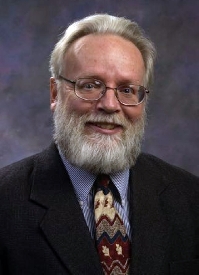University News
IIRA Website Commemorates Centennial of Roosevelt's Country Life Commission
July 1, 2009
By Timothy Collins, IIRA Assistant Director
MACOMB, IL -- The centennial of Theodore Roosevelt's "Country Life Commission" (CLC) of 1908–1909 offers an opportunity to showcase a cornerstone for sustainable rural community and economic development.
To commemorate the CLC's work, Timothy Collins, assistant director of the Illinois Institute for Rural Affairs (IIRA) and Stephen R. Hicks, graduate assistant, developed a website that traces the CLC's legacy; the website can be found at www.iira.org/clc/.
Roosevelt's CLC emerged in a turbulent time, as America was being transformed from a rural, agrarian society into an urban, industrial society. Agriculture was fairly prosperous during this so-called "Golden Age of Agriculture" that ended about 1914, but dissatisfaction with country life was evident. Rural residents flocked to the nation's cities seeking better opportunities. This was an alarming trend to some leaders, who saw rural America, especially agriculture, as the economic, social and moral foundation of the country.
"The Report of the Country Life Commission," issued in March 1909, is rarely read now. Roosevelt's biographers hardly mention it. It comes up in academic discussions of rural-development policies. It is not generally recognized as part of the foundation for sustainable rural community development practice. In reality, the report is a gem partially hidden under layers of time and passing generations. Some of its old ideas, however, have enough glitter to shed some light on sustainable rural communities today.
Those who inherited the CLC's legacy early in the 20th century hoped to activate people in communities to improve the standard of rural life. The basic CLC idea was to get people together to talk about problems and opportunities, a basic step in community building.
Rural schools and churches were central to bringing people together and educating them to build stronger communities with deep-seated civic and religious values. Community residents also would develop new businesses, such as cooperatives, to increase farm income and the quality of farm life. Increased farm income depended on farmers working together to improve transportation and create markets that would pay good prices for their products.
With prophetic words, Roosevelt, in a 1910 speech after publication of the "The Report of the Country Life Commission," linked natural resource conservation with successful farm communities. This is a necessary condition for what we today call "environmental and community sustainability."
Community developers -- now including both social and environmental scientists -- follow in CLC's tradition. They distill research knowledge, provide educational opportunities and facilitate building community networks that focus on improving the quality of life.
Based on community-development principles, participatory processes let citizens collaborate and use their local knowledge to adapt science-based knowledge to improve their lives. The process enhances the capacity of individuals and groups to build communications, trust and leadership with a common goal of sustainability.
You can learn more about the website by contacting IIRA at the phone number below or by visiting www.iira.org/clc/.
Western Illinois University is an Affirmative Action, Equal Opportunity institution. For more information about the Illinois Institute for Rural Affairs, see www.IIRA.org. If you care to comment about this column, please contact Timothy Collins at (800) 526-9943 or T-Collins@wiu.edu.
Posted By: University Communications (U-Communications@wiu.edu)
Office of University Communications & Marketing


Connect with us: